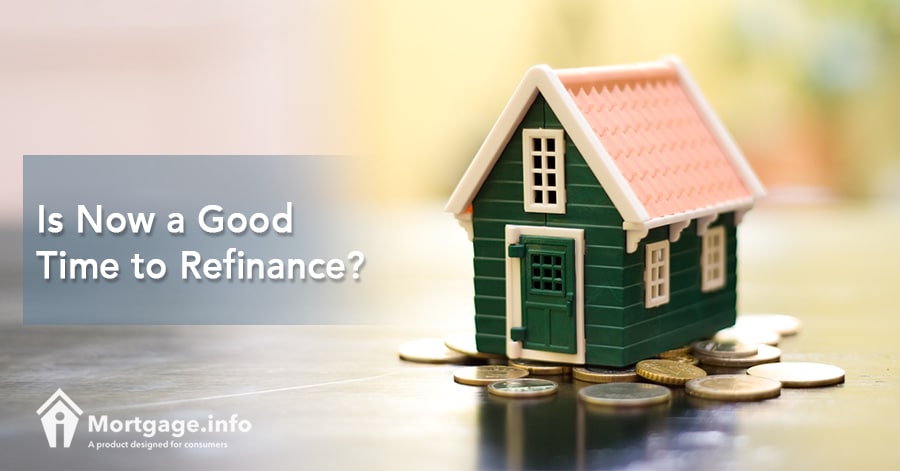
If you’ve been watching the news and see that interest rates are dropping, you might wonder if you should refinance. Is now a good time? Is it better to wait?
Compare Offers from Several Mortgage Lenders.
How do you know just when you should take out that new loan? Is there ever a perfect time?
While we don’t have the magic answers regarding when the perfect time is for you, there are some things you should consider to determine if now is the right time to refinance. Ask yourself the following questions.
Will I Save Money?
This is the key to refinancing. If you won’t save money, what’s the benefit of refinancing? Not only should you determine if you will save money on your payment, but you should see how the loan affects you in the long run. How much interest will you pay? Is it more than you would have paid on your original loan? This is often an issue if you restart your term. In other words, if you had a 30-year loan but paid a few years on it, but then refinance into another 30-year term. You start from scratch.
What are the closing costs?
The closing costs play a role in whether refinancing is worth it or not. You can figure out what’s called your break-even point. This is the point where you pay off your closing costs from the savings of the refinance. For example, if closing costs were $5,000 and you saved $100 per month, you would pay the closing costs off in 50 months. You can then decide if this break-even point makes sense. Will you shortly before or after that 50-month mark? If so, refinancing might not make sense.
Do you qualify for a lower rate?
Click to See the Latest Mortgage Rates.
If you are refinancing to save money, you probably want a lower interest rate. The exception to the rule might be if you have an adjustable rate now. You might take on a higher fixed rate just to avoid the risk of an adjusting rate.
Just because rates are lower doesn’t mean you will qualify for that rate, though. You will have to prove that you are a good risk. You do this by maximizing your credit score, lowering your debt ratio, and showing stable employment/income. Any risk factors, such as a low credit score or high debt ratio could increase the rates lenders are willing to provide.
What are the terms?
It doesn’t pay to refinance if you are going to start from scratch. Like we discussed above, if you restart your term, you pay more interest over the life of the loan. If you can afford it, take a lower term. For example, if you had a 30-year term but paid 5 years on it, try refinancing into a 25-year term. Maybe you even see if you qualify and can afford a 20 or 15-year term. This way you pay less interest over the life of the loan.
Do you need to refinance?
If you are refinancing to decrease the amount of interest you pay over the life of the loan, there’s a way to do it without refinancing. You can make higher payments, whether that means just an extra $100 per month or you make 15-year payments on a 30-year loan. You can pay extra towards the principal, paying it down and owning your home faster without actually refinancing.
Now may be a good time to refinance, but it depends on your circumstances. Weigh the pros and cons of the situation to see if it makes sense. Make sure you account for all aspects of the loan including the closing costs and how the new loan affects the amount of interest you pay in the end.
